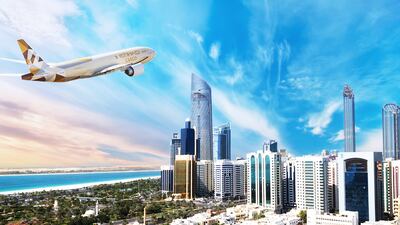Etihad Cargo, the cargo and logistics arm of Etihad Aviation Group, is the first Middle Eastern carrier to join a global sustainability verification programme as part of its continuing push for greener operations.
By participating in the BlueSky programmed developed by the International Air Cargo Association (TIACA), Etihad Cargo will assess its sustainability against eight criteria across environment, society, and culture and leadership, it said on Thursday.
“The assessment process will enable Etihad Cargo to more effectively measure the carrier's performance and track its sustainability progress as it continues on its sustainability journey, which will benefit its customers and the wider air cargo industry,” Martin Drew, senior vice president of global sales and cargo at Etihad, said.
The move to join the programme is the latest step Etihad Cargo has taken to achieve the airline's goal of net zero carbon emissions by 2050.
Abu Dhabi's Etihad Airways slashed its carbon emissions by 56 per cent between 2018 and 2021 as it successfully implemented programmes aimed at establishing a more sustainable business model.
The airline's carbon footprint was at 4,310,592 tonnes last year compared with 9,828,970 tonnes three years earlier, according to the company's Sustainability Report 2020-2021.
The first phase of the multi-sector sustainability verification programme comprises an evidence-based desktop verification process in which participants can assess their progress against eight critical sustainability criteria.
The criteria include decarbonisation; waste elimination; biodiversity protection; support for local economies and communities; impact on society improvement; efficiency and profitability; employee engagement, retention and development; and partnership building.
After completing the tailored assessment process, Etihad Cargo will receive a personalised dashboard, which displays the carrier's performance against the criteria.
Future phases of the programme will include the option for a full on-site audit with an in-depth report that highlights areas for improvement.
While the air cargo industry has historically been considered less sustainable than other transport methods, the sector is taking “great strides” in developing more sustainable solutions by investing in fleet modernisation, fuel efficiency, sustainable aviation fuel and carbon compensation initiatives, Mr Drew said.

